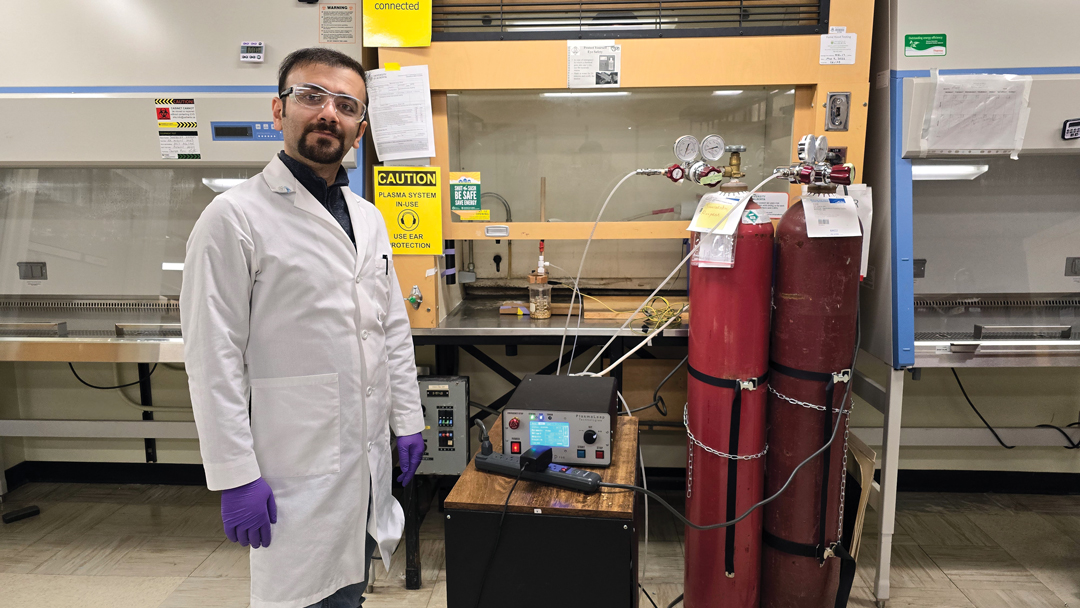RESOLUTIONS AND REQUESTS
BY ERIN K. GOWRILUK
One of the things that I love most about my job at the Grain Growers of Canada (GGC) is time spent thinking about the big picture. We consistently envision our long-term goals for Canadian agriculture and develop roadmaps to get there.
This is why I also enjoy wintertime the most. It’s when we look forward with optimism and hope (perhaps more so this year than in others), and we make plans. At GGC, our New Year’s resolution is the same as in past years: to build the foundation for Canadian agriculture so it can achieve even more than it already has. In the spirit of the holidays, we asked our federal government to join in on this resolution with us. Specifically, we want Canadian agriculture policy makers to rewrite their roadmap to prosperity for our sector.
Our industry faces unprecedented challenges in the international marketplace. These include unenforced and ineffective free trade agreements (FTAs), unresolved and unaddressed trade issues and a government that hasn’t prioritized addressing these problems.
Farmers get paid when they deliver their grain to market. When market access is lost, until it is fully restored, it directly impacts the profitability of Canadian farms. We have long relayed this message to the government and provided constructive suggestions to help it address our concerns. In fact, last month, we delivered four specific asks during our fall grain lobby week in Ottawa.
SUPPORT AND ENFORCE CURRENT FREE TRADE AGREEMENTS
The Canada–European Union Comprehensive Economic and Trade Agreement (CETA) is an example of an FTA that holds tremendous potential. Unfortunately, it has failed to remove barriers and expand growth opportunities because it hasn’t been enforced. The government must ensure existing FTAs are effective and implement new ones beneficial to our industry.
PROACTIVELY ADDRESS TRADE ISSUES BEFORE THEY BECOME BARRIERS
Given the challenges that face Canada’s export dependent agri-food sector, we need additional resources to promote Canadian products and ensure continued access. For example, regionally based response teams made up of trade officials, technical experts and industry representatives, could be developed to address market access issue as they arise.
BE A LEADER ON THE INTERNATIONAL STAGE
A mid-pack trading power such as Canada relies on a predictable, rules- and science- based international trading environment, especially as we face increasing trade barriers and protectionism. We applaud the Canadian government’s leadership in forming the Ottawa Group on World Trade Organization (WTO) reform. This type of work is essential to advance free and fair global trade in these unpredictable times.
EMPLOY THE APPROPRIATE RESPONSE TO AG TRADE BARRIERS
Technical issues are increasingly used as cover for politically motivated issues. While technical issues require a technical response, when we rely on technical experts to resolve issues that are political in nature, we invest time and energy in a lengthy process that will never yield a resolution. We should always consider the best approaches to the resolution of trade challenges that are clearly not technical in nature. The sooner we identify the root issue, the sooner we can employ the appropriate response.
These asks were well-received in Ottawa. I hope to report positive developments on this issue soon. Perhaps because it’s been a very challenging year, or maybe I’m being overly optimistic, but as we begin this brand new year, I have the feeling 2021 will be good for our industry and for all of you.
Erin K. Gowriluk is the executive director of the Grain Growers of Canada.







Comments